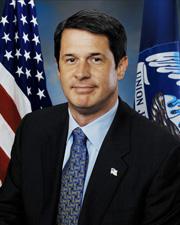0
Vessel Incidental Discharge Act
3/14/2024, 12:48 PM
Congressional Summary of S 2094
Vessel Incidental Discharge Act - (Sec. 4) Requires Department of Homeland Security (DHS) to:
- establish and implement enforceable uniform national standards for the regulation of discharges incidental to the normal operation of a vessel into navigable waters;
- issue a rule establishing best management practices for discharges incidental to the normal operation of a vessel other than ballast water within two years;
- complete a review to determine the feasibility of achieving the ballast water performance standard at least two years before January 1, 2022; and
- issue a rule to revise the standard so that a ballast water discharge will contain less than specified concentrations of living organisms, indicator microbes, and viruses by January 1, 2022.
(Ballast water is any water taken aboard a vessel to control trim, list, draught, stability, or stresses of the vessel, or during the operation of a ballast water treatment technology of the vessel. A treatment technology includes any mechanical, physical, chemical, or biological process used to remove, render harmless, or avoid the uptake or discharge of aquatic nuisance species within ballast water.)
(Sec. 5) Deems the management requirements for a ballast water discharge incidental to the normal operation of a vessel to be those set forth in the final rule, "Standards for Living Organisms in Ships' Ballast Water Discharged in U.S. Waters" (March 23, 2012), as corrected (June 8, 2012) until DHS revises the ballast water performance standard or adopts a more stringent state standard pursuant to this Act.
Applies the revised ballast water performance standard to a vessel on the first dry docking of the vessel on or after January 1, 2022, but no later than December 31, 2024.
Allows DHS to establish a deadline for compliance by a vessel (or a class, type, or size of vessel) with a revised ballast water performance standard. Provides a process for petitioning for an extension of a deadline, including factors to be considered. Requires DHS to accelerate an implementation deadline if a treatment technology can be implemented before the deadline date.
Requires DHS to review and revise the ballast water performance standard if the revision would result in a scientifically demonstrable and substantial reduction in the risk of the introduction or establishment of aquatic nuisance species. Requires DHS to conduct the review 10 years after the issuance of the revised rule and every 10 years thereafter. Authorizes DHS to include in the review best management practices for discharges other than ballast water. Requires DHS to revise the practices if the revision would substantially reduce the impacts on navigable waters of discharges incidental to the normal operation of a vessel other than ballast water.
(Sec. 6) Prohibits manufacturers of ballast water treatment technology from selling, introducing, delivering for interstate commerce, or importing such technology for sale unless it has been certified under this Act. Sets forth a certification process. Directs DHS to require the use of ballast water treatment technology that achieves the performance levels of the best treatment technology available if no treatment technology can be certified to comply with the revised ballast water standard. Directs DHS to revise a ballast water performance standard for a class of vessels to incorporate any existing higher performance standard.
Prohibits DHS from approving a ballast water treatment technology if it uses a biocide or generates a biocide: (1) that is a pesticide, unless the biocide is registered under the Federal Insecticide, Fungicide, and Rodenticide Act (FIFRA) or DHS, in consultation with the Environmental Protection Agency (EPA), has approved the use of the biocide in the technology; or (2) the discharge of which causes or contributes to a violation of a water quality standard under the Federal Water Pollution Control Act (commonly known as the Clean Water Act.)
(A biocide is a substance or organism that is introduced into or produced by a treatment technology to reduce or eliminate aquatic nuisance species.)
Prohibits the use of a ballast water treatment technology by an owner or operator of a vessel from satisfying this Act's requirements unless it has been certified by DHS, is a technology being evaluated under the Coast Guard Shipboard Technology Evaluation Program, or a technology certified by foreign entities with requirements equivalent to those in this Act.
(Sec. 7) Sets forth exemptions from permit requirements, prohibitions of any other law, and discharge standards under this Act for specified discharges and vessels.
(Sec. 8) Authorizes DHS to promulgate regulations establishing alternative programs for compliance with ballast water discharge regulations for specified vessels. Directs the EPA to promulgate standards for: (1) the reception of ballast water from a vessel into a reception facility, and (2) the disposal or treatment of such ballast water.
(Sec. 11) Establishes this Act as the exclusive statutory authority for federal regulation of discharges incidental to the normal operation of a vessel to which this Act applies.





